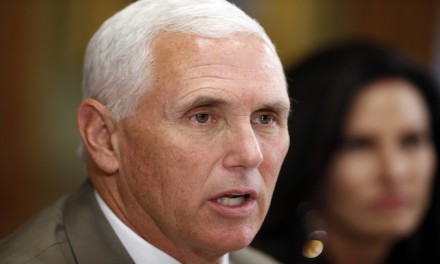St. Paul is planning to distribute a second wave of $500 monthly cash payments to low-income families over two years, Mayor Melvin Carter announced Wednesday.
The capital city, one of the first in the country to launch a local guaranteed income program, will support 333 families in this latest round — more than double the number who participated in the first round.
The concept of guaranteed income gained traction early in the pandemic, as the number of Americans facing financial insecurity suddenly multiplied. The goal is to give people more flexibility to address the changing needs of their families, Carter said in a speech at the Midwest Asset Building Conference.
“All the things that we correlate with poverty suddenly aren’t an act of God anymore,” he said. “They’re suddenly this fungible thing that we can impact just by making sure that people have enough money to get to the end of the month.”
Unlike traditional welfare programs, which often include work or reporting requirements, St. Paul and dozens of other cities across the country are exploring what happens when assistance is provided with no strings attached.
St. Paul launched its previous guaranteed income pilot — the second city-led effort in the country and the first to tap into public funding — in the fall of 2020. The program, dubbed the People’s Prosperity Pilot, gave $500 payments to 150 families each month for a year and a half.
The second wave, which requires City Council approval, is to be funded with $4 million of the city’s allocation from the federal American Rescue Plan Act and $1 million from philanthropic donors.
The city will randomly select participants following the same guidelines used for the first round. Recipients must have an income at or below 300% of the federal poverty level — $83,250 annually for a family of four — and have a child enrolled in St. Paul’s CollegeBound program, which has deposited $50 into a college savings account for every newborn in the city since the start of 2020.
Those who enroll will also receive a $1,000 deposit in their child’s college savings account.
St. Paul is teaming up with researchers from the University of Michigan and the University of Pennsylvania to study the effects of CollegeBound and guaranteed income. An additional 333 low-income families will receive a $1,000 deposit in their child’s college savings account but no guaranteed income, and another 333 families enrolled in CollegeBound will serve as a control group.
Though researchers’ evaluation of the initial guaranteed income pilot won’t be ready until early next year, Carter said he was convinced to double down on the initiative in after hearing how payments made a difference in the lives of some families.
“We have lots of anecdotal evidence about many of the different ways in which they’ve been able to leverage these resources for the betterment of their family, for the betterment of their children,” he said.
The mayor also pointed to data from Stockton, Calif., which launched the nation’s first city-led guaranteed income program in 2019. A study shows that those who received monthly payments were more likely to find full-time employment compared to those in a control group. Cash recipients were most likely to spend their stipends on food, merchandise and utilities.
Carter acknowledges that it is not sustainable for cities to fund guaranteed income programs in perpetuity. He and other members of Mayors for a Guaranteed Income, a network that also includes Minneapolis Mayor Jacob Frey, are hoping to make a case for a policy at the federal level.
“We know that we haven’t been winning the war on poverty,” Carter said. “That means we are required to bring new strategies.”
©2022 StarTribune. Visit startribune.com. Distributed by Tribune Content Agency, LLC.
—-
This content is published through a licensing agreement with Acquire Media using its NewsEdge technology.



















More stupidity, it is unending.
socialism in minnesotastan.
AND you can take it to the bank, SINGLE, white, conservative males, are NOT AMONG that list, getting this dosh.
No it’s low income seniors. Who worked all their lives and now on a fixed income and need help. But they are white. Fixed income and low income not much of a difference. Oh wait fixed income pays school taxes if you own a.home